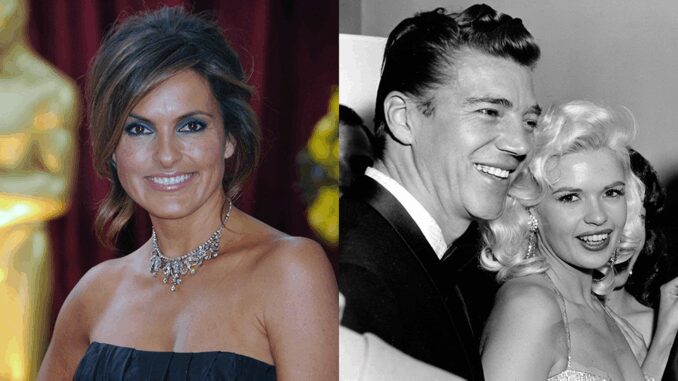
The Shadow of a Star: How Jayne Mansfield's Legacy Shaped Mariska Hargitay's Iconic Role
Mariska Hargitay is more than just Olivia Benson. She’s a survivor, a champion for victims, and a cultural icon who has redefined the landscape of prime-time television. While her dedication and talent are undeniable, Hargitay’s path to becoming Olivia Benson is inextricably linked to the tragic legacy of her mother, Jayne Mansfield, a connection that permeates her performance with a profound depth and understanding. Mansfield’s dazzling, ultimately devastating, life casts a long shadow, a shadow that, in a way, forged the steel that makes Hargitay’s portrayal so powerful and enduring.
Jayne Mansfield, the blonde bombshell of the 1950s, was a whirlwind of glamour, ambition, and vulnerability. She navigated a world that simultaneously celebrated and exploited her beauty, often sacrificing personal happiness for professional success. Her tragic death in a car accident when Mariska was only three years old left an indelible mark, carving a void that resonated throughout Hargitay’s life. This early trauma, the abrupt and inexplicable loss of her mother, created a profound sense of empathy and a burning desire for justice – qualities that are essential to understanding the complexity of Olivia Benson.
Hargitay’s childhood, inevitably, was steeped in the mythology surrounding her mother. She grew up surrounded by the remnants of Mansfield’s fame: photographs, stories, and the constant scrutiny of the media. This constant awareness of her mother’s public persona, juxtaposed with the profound absence of a private relationship, likely fostered in Hargitay a deep understanding of the fragility of fame and the potential for exploitation that lies within the entertainment industry. She witnessed, even as a child, the objectification and scrutiny that Mansfield endured, and this undoubtedly informed her understanding of the power dynamics that often play out in cases of sexual assault and abuse, the very cases that Olivia Benson dedicates her life to investigating.
It's not simply a matter of inherited empathy, however. Hargitay’s own journey toward understanding and processing her childhood trauma mirrors Olivia Benson's journey to become a trusted advocate for survivors. The raw emotion that Hargitay brings to her performance is not merely acting; it's informed by personal experience and a deep well of compassion. Watching Olivia console a traumatized victim, one can't help but see a flicker of Mariska's own vulnerability, a knowing glance that acknowledges the long road to healing.
Furthermore, Mansfield’s experience in a male-dominated industry, where her agency was often compromised, likely instilled in Hargitay a strong feminist sensibility. Olivia Benson is not just a detective; she's a fierce advocate for female empowerment, constantly challenging systemic biases and fighting for a more equitable justice system. This resonates with the unspoken subtext of Mansfield's story: a woman trying to navigate a world that often sought to define and control her.
Moreover, the creation of the Joyful Heart Foundation, Hargitay’s organization dedicated to supporting survivors of sexual assault, domestic violence, and child abuse, is a direct reflection of the legacy Mansfield left behind. It's a tangible demonstration of Hargitay’s commitment to turning personal tragedy into positive change, a commitment that echoes Olivia Benson's relentless pursuit of justice for the voiceless. The foundation’s work, fueled by Hargitay’s personal experiences and deep understanding of trauma, has undoubtedly shaped her portrayal of Olivia Benson, lending it authenticity and gravitas.
In conclusion, while Jayne Mansfield and Mariska Hargitay are distinct individuals with separate careers, their stories are inextricably intertwined. Mansfield’s legacy, marked by both dazzling fame and tragic loss, has profoundly shaped Hargitay’s understanding of trauma, exploitation, and the enduring power of empathy. It’s a legacy that has fueled her dedication to the Joyful Heart Foundation and, perhaps most significantly, informed the nuanced and iconic portrayal of Olivia Benson. The shadow of a star, in this case, has not dimmed the light of its daughter, but rather, has helped to illuminate the path toward a more just and compassionate world. Hargitay, channeling the echoes of her mother's life and her own personal experiences, has created a character that resonates deeply with audiences, not just as a detective, but as a symbol of hope and resilience in the face of adversity.
